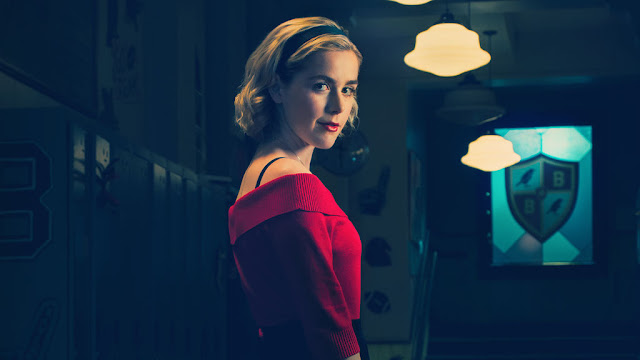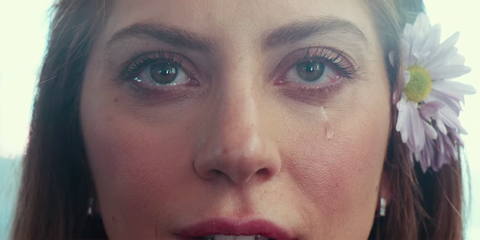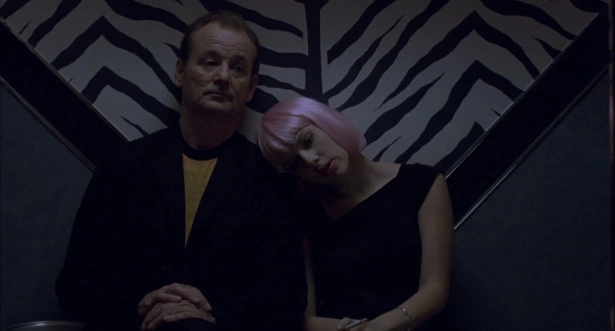How and How Not to Satirize Rom-Coms: Isn't It Romantic VS. Playing It Cool
Rebel Wilson in Isn't It Romantic (2019), and Chris Evans, Topher Grace, and Michelle Monaghan in Playing It Cool (2014)
I think it's safe to say that everyone has seen at least one movie that would be described as romantic comedy, or rom-com for short. Clueless, Legally Blonde, To All the Boys I've Loved Before, 10 Things I Hate About You, When Harry Met Sally, Love and Basketball, and the list goes on for probably an eternity. And while all the movies I've listed are considered good, quality movies, there are hundreds more movies in this genre that are just plain middling, or downright awful. Each of these movies, whether good or bad, follows very specific tropes that are now staples of the genre, so much so that they have been parodied and satirized by media for decades. Now, what are some of these tropes, exactly?
TV Tropes is the best place to find all of these tropes, so I'll link the Romantic Comedy trope page here so you can find your favorite rom-com and all of the tropes it uses. Some examples of tropes found in these movies are: the gay best friend of the protagonist, a grand romantic gesture by the end of the film to win the love interest over, interrupting the love interest's wedding, love at first sight shared by the main couple, running through someplace like an airport to stop the love interest from leaving, and many, many more. In many films, these tropes can be overlooked, or even done in such earnesty that they are charming and beautiful; in other films, these can be absolutely laughable, done in ways that elicit feelings of embarrassment in the audience rather than genuine happiness.
Isn't It Romantic (2019) and Playing It Cool (2014) are both films that attempt to subvert the tropes of romantic comedies in order to produce satisfying satires that are funny but still have engaging characters and romances. But, my god, it's amazing just how awful the latter is, especially when compared to the former. In Playing It Cool, Me (Chris Evans), who I refuse to call just Me so let's call him Chris, has never been in love. His relationships constantly end poorly, and he feels he has no capacity in his heart for love because his mom left him when he was a child. His heart is cynical, manifesting as a dark, almost noir-detective who doesn't believe in love. All of this changes, however, when he meets Her (Michelle Monaghan), who we'll just call Michelle, and real love blossoms. In Isn't It Romantic, Natalie has never opened herself up to this romanticized version of love because she believes it's a fairy tale that she can never experience because she is not who is normally the star of romantic comedies. Everything shifts when, after an attempted mugging, she hits her head, and wakes up in the romantic comedy version of her life, complete with a clean New York City, men who fawn over her, and a Liam Hemsworth played love interest (Blake) who thinks she's absolutely beguiling. Both want to subvert the genre for the sake of comedy, but only Isn't It Romantic is able to succeed in truly satirizing the genre, because it has a true love for all things rom-com.
Isn't It Romantic absolutely adores rom-coms at its core
To start, Natalie has a very believable and average reason to dislike rom-coms, as she has never been the skinny, flawless girl that so often finds love in them. And while she seems to genuinely hate them on the surface, she does know quite a bit about them, more than enough to show that she's seen plenty of them before. Her romanticized version of her life comes with: an impossibly gorgeous love interest, a gay best friend, an interrupted wedding, a huge karaoke song-and-dance number, an annoying narration that pops up to spell things out for the audience, and more impossible things. Each time one of these tropes plays out, Natalie groans, knowing just how unrealistic and tired these cliches are, but what makes the movie stand out from other parodies is that it makes good use of these tropes. Each joke is acted so honestly through each of the characters in this imaginary land that you can help but laugh at them and Natalie's straight-man routine that goes with them. Natalie is able to acknowledge and joke about the tropes in this world, but is able to revel in the absurdity and even enjoy the most wish-fulfilling aspects of the genre. In short: it works.
The way that each character in the film completely ignores her confusion at these cliches, the way she can so readily embrace something simply because it's something she knows she could never have these opportunities in reality, the movie clearly doesn't hate the genre that it's in. And how vindictive could it really be? It uses the tropes in a subversive but effective way, with Natalie playing into some tropes (running to stop a wedding, for example), to realize that, yes, real life isn't a movie, but it can be just as fun, romantic, and beautiful if you want it to be. In the end, Natalie realizes that the one she had to love first was herself, not either of her suitors; she chooses confidence and her own happiness before jumping head on into marriage or some other alternative. Her life can be the beautifully shot and wonderfully campy rom-com, but she has to love herself first before she can truly love others.
Playing It Cool does absolutely none of these things, effectively making it one of the worst films to try to satirize the genre. Chris hates the rom-com genre just as much as Natalie, but it's amazing how much more vile that hatred seems. I have a sneaking suspicion that the screenwriters of this film legitimately hate this genre, but, much like Chris, had a deadline to meet, and tried to write something smart within the confines of their genre. However, as stylized as they try to make this movie, with it's constant imaginary scenarios and seamless scene transitions, it fails on every aspect as a satire, ringing hollow and even hypocritical rather than genuinely funny. Scenes without the main romance, ones that focus on Chris' main group of friends, are genuinely engaging, but the romance itself feels like it wants to scream about how awful and creepy it is at times, but it just can't; it's stuck in a little cage that it already opened the door to, but refuses to leave.
Michelle is a fine character, but when her and Chris act as romantic leads, their relationship crumbles
Several times throughout the film, Chris takes it upon himself to complain about the tired cliches of romantic comedies, except he never calls attention to the fact that the film uses other cliches seriously in order to seemingly fill a quota. They mock the running through the airport scene but genuinely have a gay best friend for Chris; they complain about how unrealistic the romances in the movie are, yet engage in having an awful, kind-of-makes-no-sense romance; and they may hate the big romantic gesture in which absolute strangers follow and support the protagonist, but they love, and I do mean LOVE the tired, annoying, assumes-I'm-unintelligent narration that follows the protagonist throughout the film. Chris narrates nearly every scene in this movie, which makes it the pinnacle of the show don't tell argument; this is an annoying movie because it assumes it's audience doesn't already know everything that it's going to say. It tries to be edgy and creative, but every step in these directions just feels like wasted potential, especially from actors (Aubrey Plaza, Topher Grace, Anthony Mackie) that I know can, and have done, so much better.
Isn't It Romantic is not a perfect film, either. Natalie does end up, in a way, technically not single when she asks Josh (Adam Devine) out on a date (her friend that she was really in love with the whole time), not only kind of missing the "love yourself first" message but also continuing the trend of the not considered conventional leading woman ending up with a not conventional leading man (this can be seen in Booksmart (2019) as well, for a more recent example). And yes, not all of its jokes land, and technically, yes, I did laugh out loud more at Playing It Cool, but it's easy to see why one of these was a much bigger failure than the other. Playing It Cool also has a best friend who's been in love with the protagonist the whole time in the form of Mallory (Aubrey Plaza), but, because Chris is a conventional leading man, this romance is not meant to be. And why would she fall in love with him anyway? He's an awful person who always thinks he's right and wrote the worst fictional screenplay I've ever heard of (it's called Splitsville, about two people with DID's that fall in love, and I hate it), while Natalie is a legitimately kind, smart, albeit pessimistic person. You can understand why Josh, at the end of the film, reveals he's been stealing looks at her the whole time they've worked together and not at the billboard of Isabella (Priyanka Chopra); the two have a palpable chemistry, and at every turn she is seen to be a character that is constantly learning to grow and change.
What sets these movies apart is not just an inability to firmly understand and satirize the rom-com genre, but the tone they both achieve. Playing It Cool thinks it's above romance, while Isn't It Romantic lightheartedly pokes fun at it. When Blake gives Natalie his phone number on rose petals after meeting once and deciding he's in love, you genuinely believe he finds her charming, beautiful, maybe even beguiling (he says this last one a lot). But when Chris decides to sleep with Michelle despite the fact that she has a boyfriend, you know it's a bad choice that they both shouldn't act on because they're adults who know how to make decisions. Michelle's fiance is a caricature just so the audience will want her to end up with Chris, but he's so awful and even stalks her several times that there's no way he could be right for her either. At the end of the film, he says that he would be happy to regret Michelle if their relationship goes south; well I unhappily regret watching this film instead of watching literally anything else.
Anyway, stream Always Be My Maybe (2019) on Netflix.
Anyway, stream Always Be My Maybe (2019) on Netflix.
Thank you to my Patrons:
Ben Bird Person
Twitter: https://twitter.com/meganro1110
Instagram: https://www.instagram.com/meganr1110/






Comments
Post a Comment